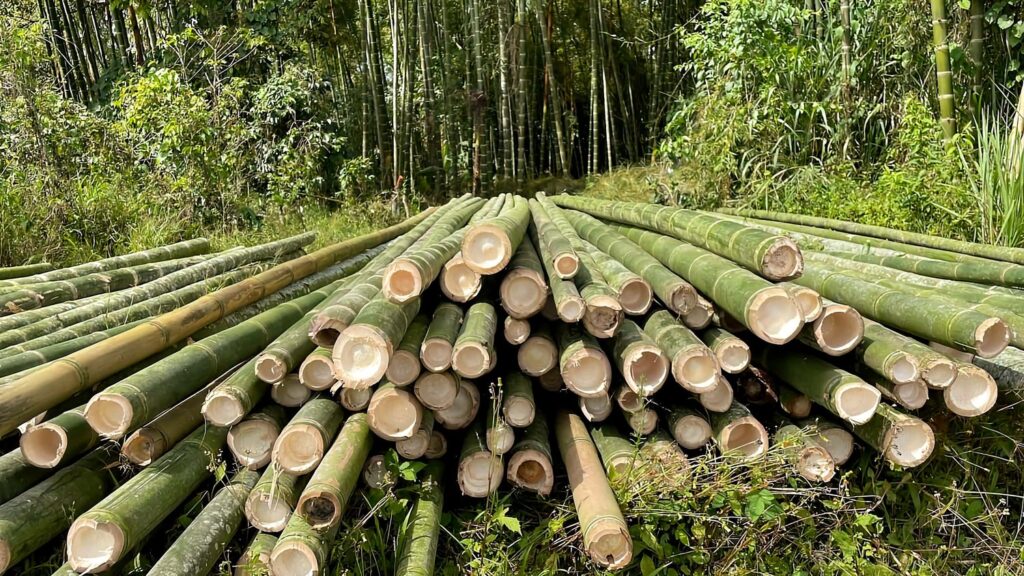The Tripura government is taking significant steps to increase bamboo production and introduce modern technology to its bamboo craft industry. Industries and Commerce Minister Santana Chakma announced this initiative recently, highlighting the state’s commitment to meeting the rising demand for bamboo products. Chakma explained that Tripura, which holds 28% of India’s bamboo stock, has the potential to transform its bamboo industry into a major economic driver. By incorporating modern technology and improving production processes, the state aims to elevate bamboo crafts and products to meet national and international market standards.
In a statement, the minister emphasized that bamboo has long been a vital resource in Tripura, used in traditional crafts, construction, and daily life. However, with changing consumer preferences and the need for sustainable alternatives to plastic, the demand for bamboo products has surged. To keep pace with this growing demand, Tripura is focusing on enhancing both the quality and quantity of bamboo production. The government is also working with local artisans and manufacturers to integrate modern technology into the crafting process, which will help create more durable, attractive, and competitive bamboo products.
The focus on modernizing bamboo production stems from the realization that traditional methods alone may no longer be sufficient to meet the needs of today’s markets. By investing in modern machinery and techniques, the government hopes to make the bamboo industry more efficient. This will also allow artisans to experiment with new designs and create innovative products that appeal to a broader audience. Chakma noted that the state is working on providing training to artisans, enabling them to use these technologies effectively. The goal is to empower local craftspeople to adapt to the changing landscape and thrive in a competitive market.
Chakma added that bamboo has the potential to create numerous employment opportunities in Tripura. The bamboo sector already employs a significant portion of the population, but with increased production and modernization, the industry could generate even more jobs. This is particularly important for rural areas, where bamboo production and crafting are often a primary source of income. The government is focused on supporting local communities, providing them with the tools and knowledge they need to benefit from the bamboo boom.
Tripura’s strategic location in the northeast, coupled with its abundant bamboo resources, positions the state as a potential leader in bamboo exports. To capitalize on this, the government is exploring export opportunities and working to improve the quality of its bamboo products to meet international standards. According to Chakma, the state has already taken steps to promote Tripura’s bamboo products on a global stage. The goal is to make the state’s bamboo industry competitive on both the national and international levels.
The government’s efforts to prioritize bamboo production come at a time when sustainability is becoming a key focus in manufacturing and consumer goods. Bamboo is a highly sustainable resource due to its rapid growth and minimal environmental impact. By promoting bamboo products, Tripura is aligning itself with global sustainability goals, which will likely increase demand for its bamboo crafts and products in the coming years.
Chakma expressed optimism about the future of the bamboo industry in Tripura. She noted that with the right investments in technology and infrastructure, the state could become a leader in bamboo production and craftsmanship. The government’s initiative aims to support local artisans while also making Tripura’s bamboo industry more competitive on a global scale. This dual approach of increasing production and incorporating modern technology is expected to significantly boost the state’s economy in the coming years.
The Tripura government’s decision to prioritize bamboo production and introduce modern technology into the industry is a forward-thinking strategy that could transform the state’s economy. By improving production processes, providing training to local artisans, and exploring export opportunities, the state aims to tap into the growing demand for sustainable bamboo products. This initiative not only promises economic benefits but also aligns with global sustainability goals, making it a win-win for both the state and the environment.

